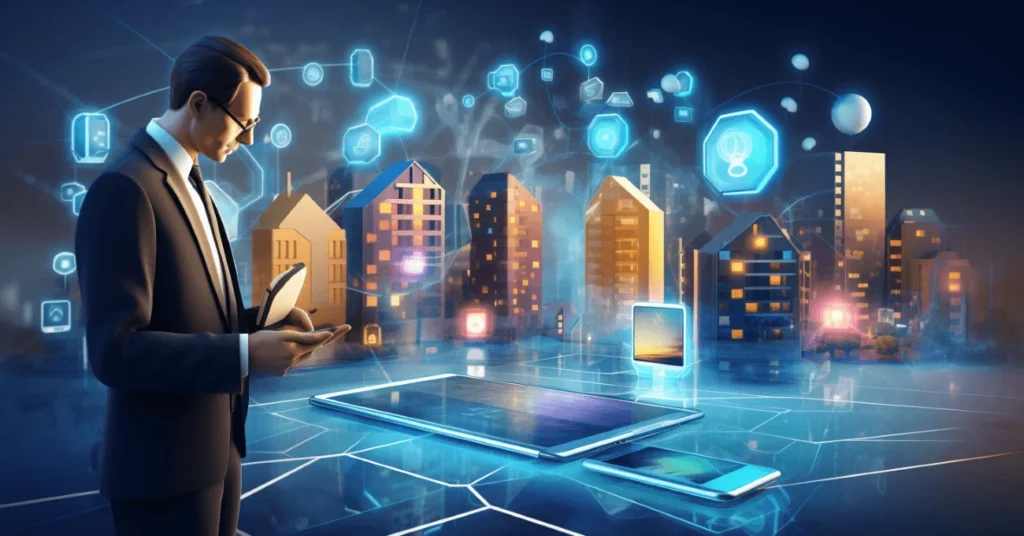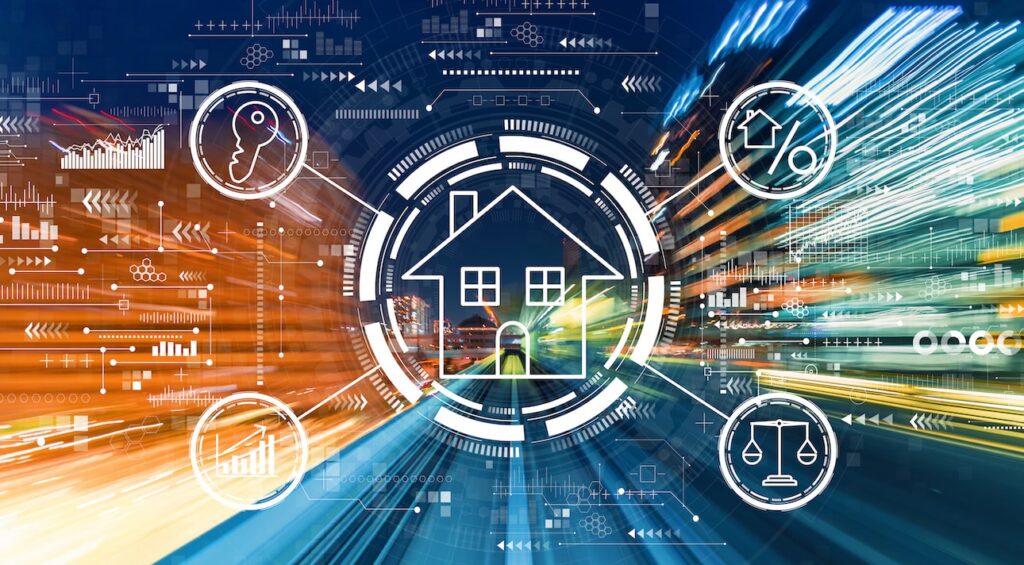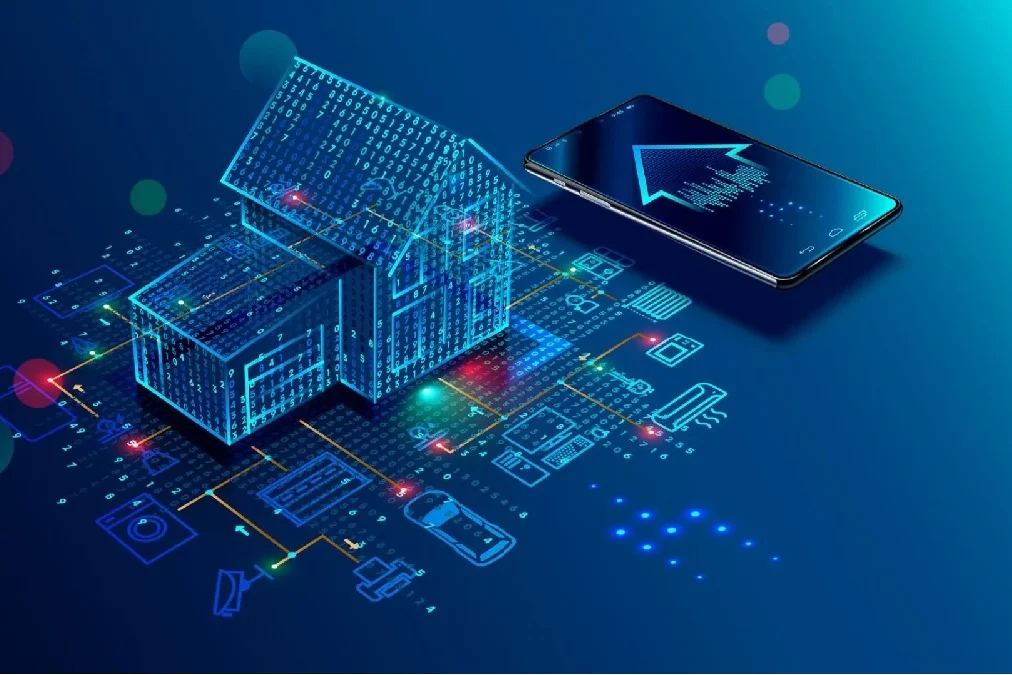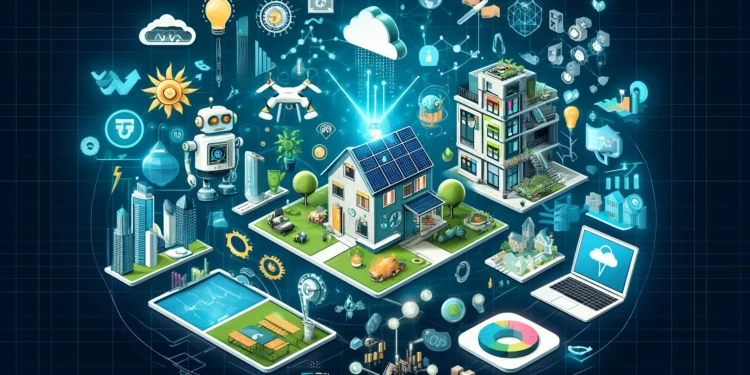In recent years, technology has seeped into every corner of our lives, transforming how we work, communicate, and even how we buy and sell property. This intersection of technology and real estate has given rise to a new term: PropTech, short for Property Technology. PropTech encompasses a wide range of technological innovations designed to improve the way we manage, invest in, and interact with real estate. From online property listings and virtual tours to sophisticated data analytics and blockchain transactions, PropTech is revolutionizing the real estate industry.
But what exactly is PropTech, and how has it reshaped the landscape of real estate? In this blog, we will explore the definition of PropTech, its various applications, and the profound changes it has brought about in the real estate market. Whether you’re a seasoned investor, a first-time homebuyer, or just curious about the future of real estate, understanding PropTech is essential in today’s fast-paced world. Join us as we delve into this exciting field and uncover how technology is making real estate more accessible, efficient, and transparent.
Also Read About : How to Make a Modern House Plans?
What is PropTech?

“PropTech” is short for “Property Technology.” It refers to the use of technology and digital innovation to improve how people buy, sell, manage, and interact with real estate. It covers a wide range of tools and applications, such as online property listing websites, virtual tours, digital contract management, smart home devices, and data analysis software.
In essence, PropTech brings together real estate and technology to make processes faster, more efficient, and user-friendly. Just as “FinTech” has transformed the finance industry, PropTech is doing the same for real estate. Whether you’re an investor, a real estate agent, a property manager, or just a regular person looking for a home, PropTech offers tools and solutions that make things easier.
The Main Components of PropTech
PropTech covers a variety of technologies and applications that impact different parts of the real estate market. Let’s look at some of the key components that make up the PropTech landscape.
1. Real Estate Marketplaces
These are online platforms that help users find properties to buy, sell, or rent. Examples include websites like Zillow, Realtor.com, and Redfin. These platforms allow users to search for properties by location, price, type, and more, making it easy to find relevant listings without needing to visit multiple real estate agencies.
Marketplaces also often provide extra information about the property, neighborhood statistics, and price estimates, helping buyers and sellers make informed decisions.
2. Virtual and Augmented Reality (VR & AR)
One of the biggest challenges in real estate is helping buyers and renters visualize a property. Virtual Reality (VR) and Augmented Reality (AR) solve this by allowing users to take virtual tours of properties from anywhere in the world. With VR, potential buyers can “walk through” a home or apartment without needing to visit in person. AR can be used to show what a space would look like with different furniture or décor.
3. Smart Building Technology
Smart building technology is a type of PropTech that’s more relevant to property management. It includes systems that make buildings more efficient and comfortable, such as smart thermostats, security systems, and lighting controls. This technology can improve energy efficiency, reduce operational costs, and enhance the overall experience for tenants.
4. Big Data and Data Analytics
Data plays a significant role in PropTech. Big data helps real estate professionals make better decisions by providing insights into market trends, property values, and customer preferences. By analyzing data, real estate companies can predict trends, set accurate property prices, and find out what types of properties are most in demand.
5. Blockchain and Smart Contracts
Blockchain technology and smart contracts offer a new way of handling transactions in real estate. With blockchain, property transactions become more transparent and secure. Smart contracts, which are digital contracts that automatically execute when certain conditions are met, can speed up the buying and selling process by reducing the need for intermediaries.
6. Artificial Intelligence (AI) and Machine Learning (ML)
AI and machine learning are used in PropTech for various purposes, such as predicting property prices, identifying ideal investment opportunities, and even chatbots that can answer basic customer questions. AI algorithms can analyze large volumes of data and generate insights that are useful for real estate professionals.
How Has PropTech Changed the Real Estate Industry?
Now that we have a basic understanding of PropTech, let’s look at the different ways it has transformed the real estate industry.

1. Easier Property Search and Discovery
In the past, searching for a property involved visiting multiple real estate offices and flipping through brochures. Today, with online platforms, users can browse thousands of property listings from their computers or phones. This has made the process much faster and more accessible, especially for people who are looking for properties in different cities or countries.
2. Enhanced Transparency
PropTech has brought more transparency to real estate. Online listings often come with photos, detailed descriptions, neighborhood statistics, and historical pricing information. This empowers buyers and renters to make more informed choices. Additionally, with the rise of blockchain, property transactions are becoming more secure, transparent, and less prone to fraud.
3. Faster and More Efficient Transactions
Buying or selling a property traditionally involved a lot of paperwork and often took weeks or months to finalize. Now, with digital tools and platforms, many parts of the process are automated, which speeds up transactions. Smart contracts can execute sales without needing intermediaries, making transactions faster, easier, and often cheaper.
4. Virtual Property Tours
Thanks to VR and AR, property buyers and renters can now take virtual tours of homes without needing to be physically present. This is especially useful for people moving to a new city or country who want to see properties before they relocate. It also became particularly valuable during the COVID-19 pandemic when in-person visits were limited.
5. Smarter Property Management
For property managers and landlords, PropTech tools simplify the process of maintaining and managing properties. Smart building technologies allow managers to monitor energy usage, manage security, and control access to the building remotely. Additionally, online platforms make it easier to handle rent payments, communicate with tenants, and even perform remote maintenance checks, making the property management process more efficient and cost-effective.
6. Better Investment Decision-Making
Investors now have access to advanced data analysis tools that help them make better investment decisions. By analyzing trends in the market, rental yields, and property appreciation rates, investors can predict where to put their money for maximum return. Additionally, AI-powered tools can help identify investment opportunities that may not be obvious through traditional analysis methods.
7. Improved Customer Experience
With PropTech, the customer experience has improved significantly. Potential buyers, sellers, renters, and investors have access to real-time information, can make inquiries through chatbots, and even receive personalized recommendations. These tools make real estate transactions more convenient and enjoyable for customers.
8. Cost Efficiency
By automating repetitive tasks, PropTech has reduced the cost of operations in the real estate sector. From marketing to contract management and tenant screening, automation tools cut down on time and costs. This efficiency benefits both real estate companies and clients, who often see lower fees and faster services.
Challenges Facing PropTech
Despite its many benefits, PropTech also faces certain challenges. For one, the real estate industry is traditionally resistant to change, so some companies may be slow to adopt these technologies. There are also concerns about data privacy and security, as PropTech involves handling sensitive information. Lastly, while PropTech has made processes faster and easier, some fear that too much automation could take away the personal touch that’s often important in real estate.
The Future of PropTech

The future of PropTech looks promising as more companies and consumers embrace digital solutions. We can expect to see more advancements in AI, VR, and blockchain, making real estate transactions even more seamless. Smart buildings and eco-friendly technologies are also expected to become more popular as property owners look for ways to reduce energy costs and create sustainable spaces.
As technology continues to evolve, PropTech will likely keep revolutionizing the real estate industry. For real estate professionals, keeping up with these changes will be essential to stay competitive in an increasingly tech-driven market. For consumers, PropTech will mean more convenience, transparency, and choice in buying, renting, and managing properties.
Conclusion
PropTech is reshaping the real estate industry by leveraging technology to make processes faster, more efficient, and more transparent. From virtual property tours and smart buildings to data analytics and blockchain transactions, PropTech has introduced a wealth of tools that benefit everyone involved in real estate. As it continues to grow, we can expect to see even more innovations that will redefine how we interact with real estate. Whether you’re a buyer, seller, investor, or agent, PropTech is likely to impact your experience, making real estate transactions easier, more secure, and more informed.








Comments 1